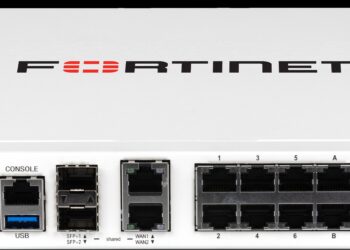Email Security: Bringing about the Human Side of Cyber Security
The Gravity Of Email Security – Safeguarding Your Digital Communications
As much as we have now evolved to a connected world, email has always been the currency of communication across businesses and people alike. And while it is the go-to medium in communication, it also poses a very big security risk. In today’s hyper-connected world, email security is not just a nice to have; but something businesses of all shapes and sizes must implement if they want to ensure their digital communications remain safe from new cyber threats. Be it a small business, an enterprise, or a person which you are working with, its email security is essential to protect your data and retain the integrity of your business.
Email Security Basics
Email security encompasses the tools and measures used to secure access to an email account or email servers: proper authenticating of email senders, encryption of emails, see e-mail encryption, and end-to-end encryption with appropriate backup. When it comes to emails which usually consist of the most critical information being transmitted and received by a company, protection is key. Unfortunately, the increase in cybercrime underlines the fact that it is essential to secure these digital communications. Organizations who utilize secure email services not only secure their information but also gain the trust of their customers and partners.
Common Email Threats
With cybercriminals upping their game by developing more and more sophisticated techniques to leverage vulnerabilities in the threat landscape. Below are some standard email threats:
- Phishing: Hackers send fake emails in order to get you to reveal your passcode, or other personal information such as password or financial information. This continues to be one of the most common threats because it is basic and to the point.
- Malware: By using emails, cybercriminals share malware in attachments or links. Once run, the malware can commandeer systems for data theft or to encrypt files (ransomware).
- Spoofing: Attackers can fake sender addresses to impersonate trusted contacts and fool recipients into dangerous actions.
- Business Email Compromise (BEC): A scam where the attacker impersonates executives or employees within an organization to manipulate other staff members into making wire transfers or revealing sensitive information.
- Spam: Although typically benign, spam emails can inundate your inbox and may include links to malware-riddled sites or phishing attempts.
The True Cost of a Data Breach
Email breaches can hurt both your personal and business lives. This can have serious financial consequences for businesses, depending on the scale of the data at stake, which could rise into the millions of dollars. In addition to the financial loss, such breaches can cause:
- Reputational Damage: A compromised email system can severely harm confidence in an organization, particularly if information related to clients or partners is leaked.
- Operational Disruption: Companies are at risk of obstacles to operations while combating the results of an email breach.
- Legal Implications: Failure to comply with data privacy laws because of a breach can lead to major fines and even lawsuits.
This reduces some of the risk to non-human entities, but individuals are still vulnerable to crimes like identity theft and illegal mining of personal data for financial fraud or emotional distress. Email attacks are so advanced and pervasive today that a reactive patchwork of email security methods is no longer good enough. What one may consider are some industry best practices email security techniques.
Email Security Best Practices
Building out a robust email protection mode is the only solution to mitigate these threats for both businesses and individuals.
- Secure email solutions: Solutions like Fortinet email security protect against all kinds of threats by using threat intelligence and filtering systems.
- Educate Your Staff: Giving training to your staff when it comes to understanding phishing attempts, redirects and how email use is handled can make sure that your employees work as the first line of defense.
- Implement Strong Authentication: Multifactor authentication (MFA) requires more than just a password, so even if bad actors have your passwords they might still require another piece of the puzzle to login.
- Keep Software Updated: Regularly updated email solutions and security tools are able to protect against the latest threats.
- Frequently Backing Up Data: This ensures that information is not lost during an attack, thus allowing businesses to quickly recover from any potential data loss.
- Encrypt communications that carry sensitive information. Encryption ensures an additional layer of protection for valuable emails because it keeps the content away from any prying eyes outside the contact it was meant for.
- Rent Firewall and Network Security Appliances: Enterprises can rent firewalls, routers, servers which are highly efficient to provide scalable security resources thereby securing email and digital infrastructure without heavy initial investments.
Conclusion: Be Wary
With the increasing complexity of email attacks, the need for powerful email security systems is only set to rise. Protecting your digital communications isn’t merely about warding off threats today; it’s about protecting tomorrow — both for yourself and for others. Businesses in particular need to ensure security is watertight, as poor security can adversely affect them and cause irreparable reputational damage or loss spanning well past the initial event.
By keeping oneself informed and being proactive against these nefarious threats through solutions like Fortinet email security, businesses and individual users can strengthen their defenses against such risks. You have to keep your ear to the ground and constantly adjust in order to stay ahead of the ever-evolving nature of security threats so that digital communications can continue being valuable, productive tools.




